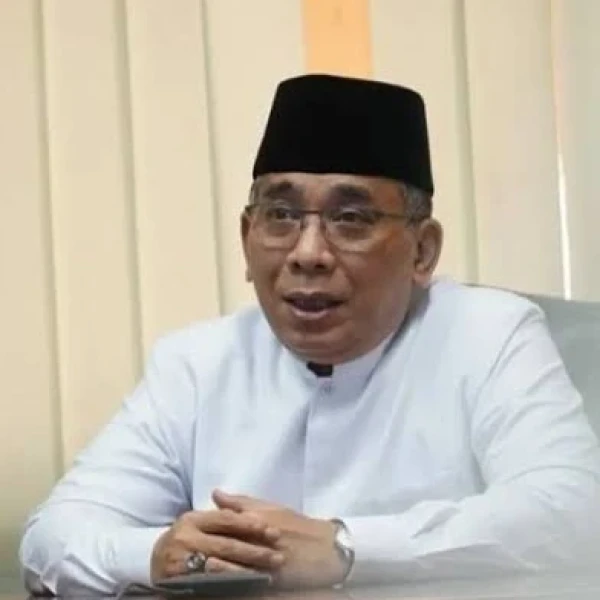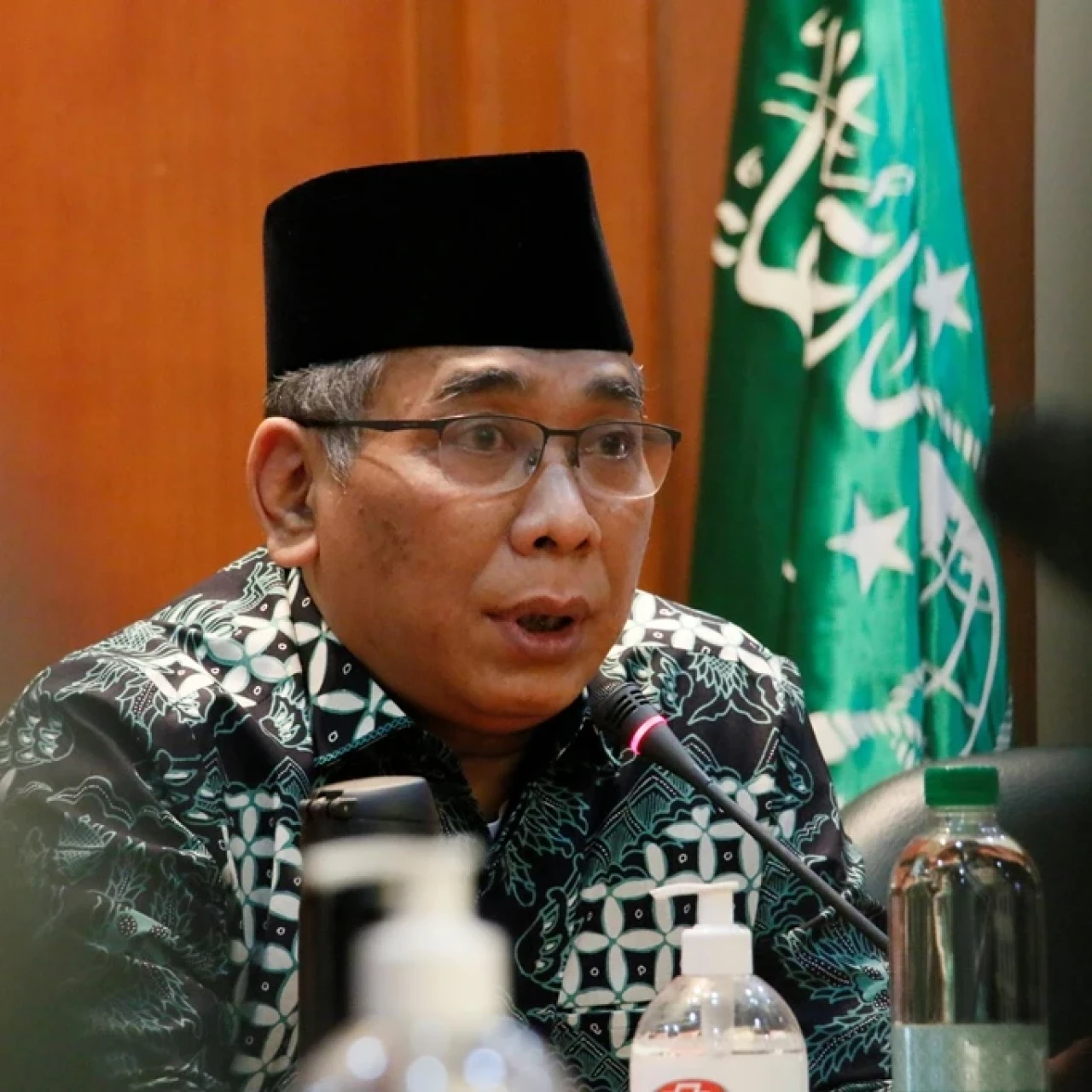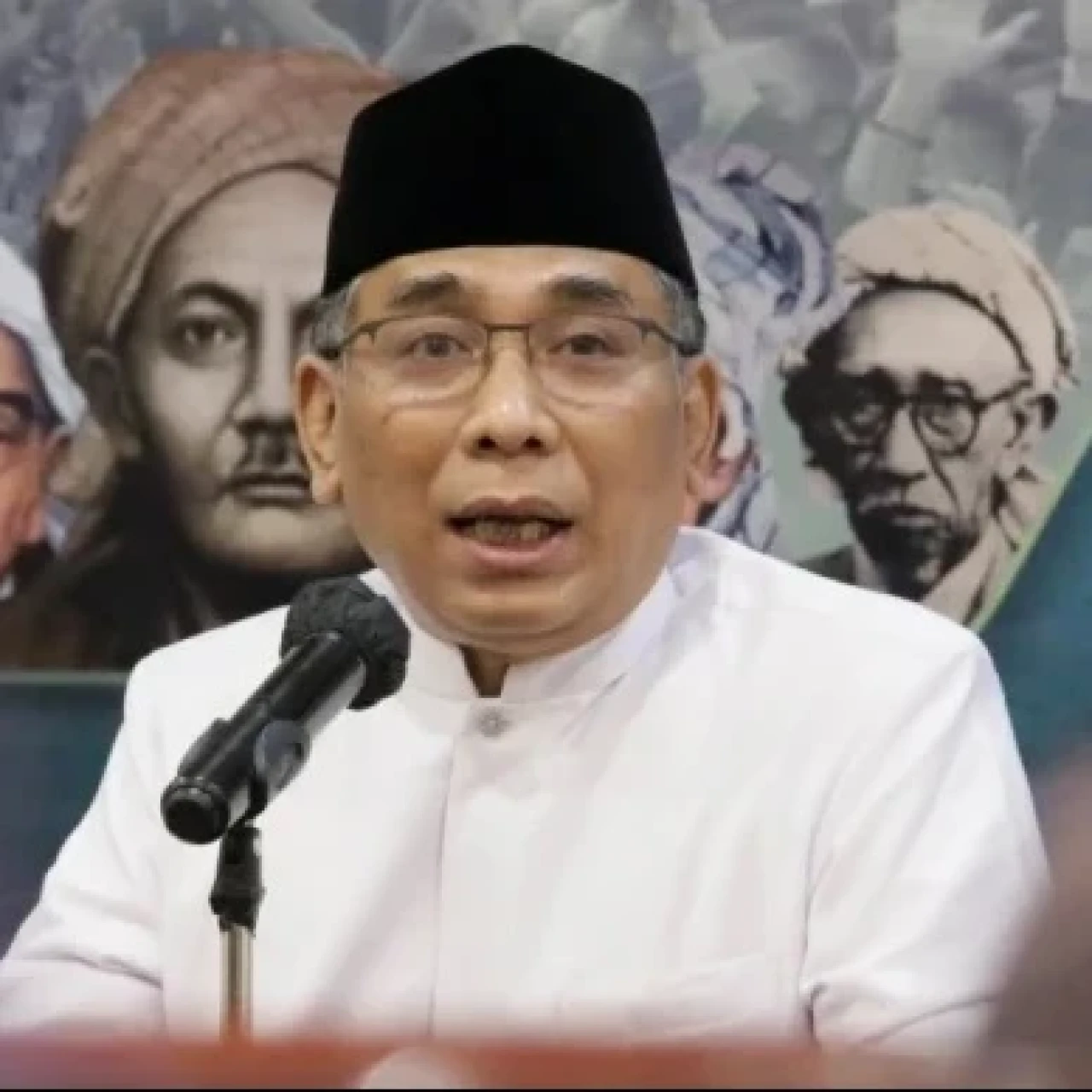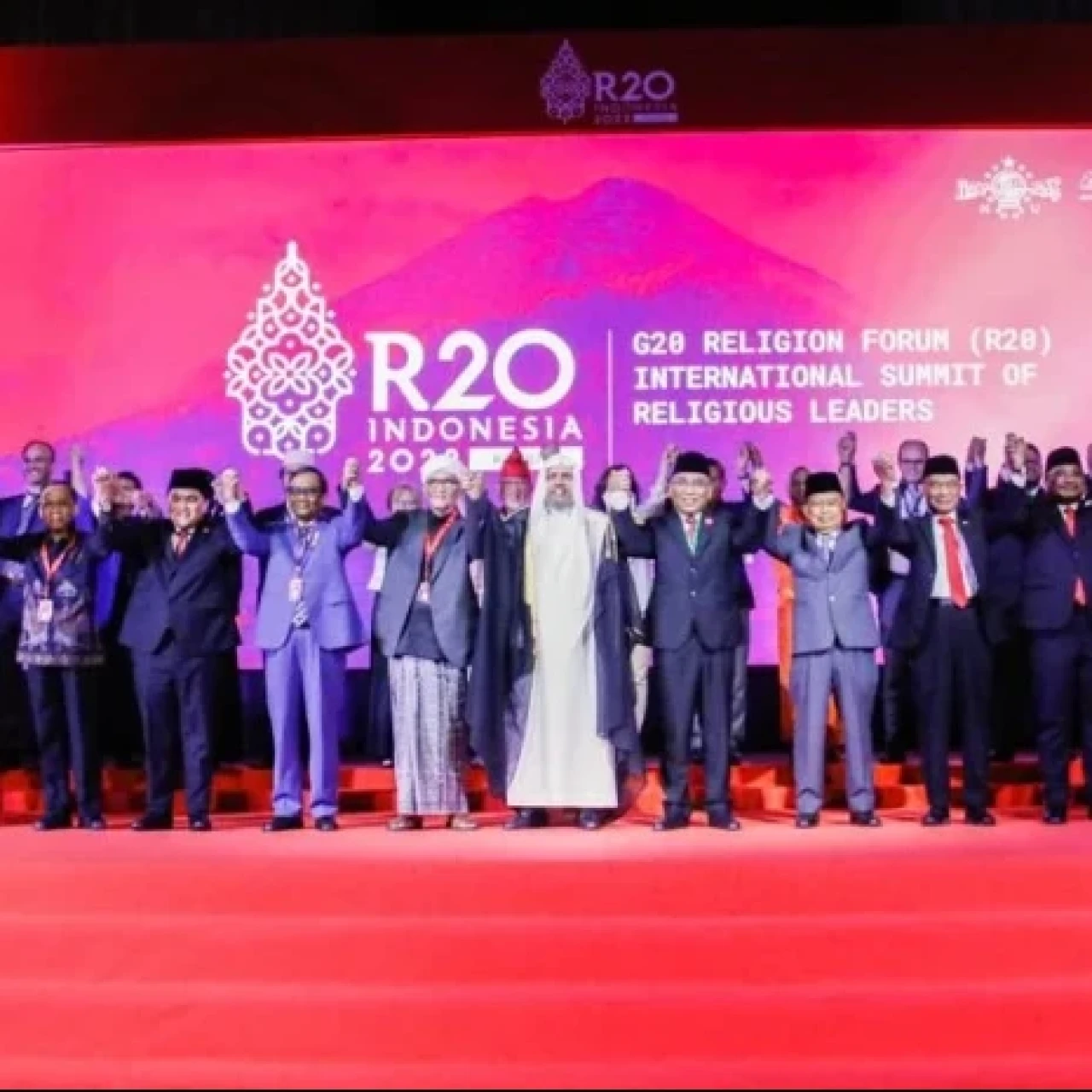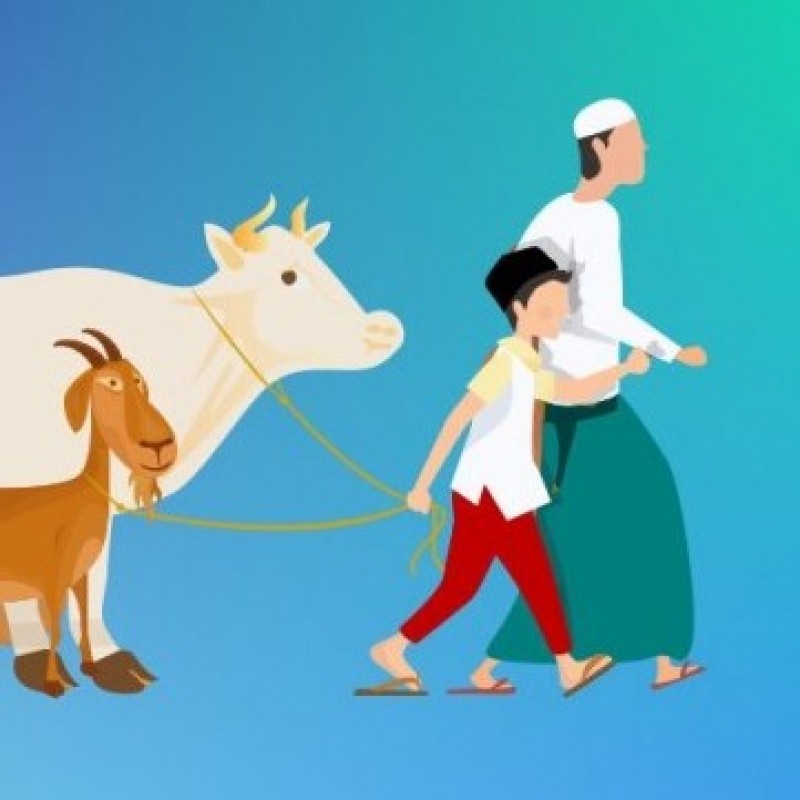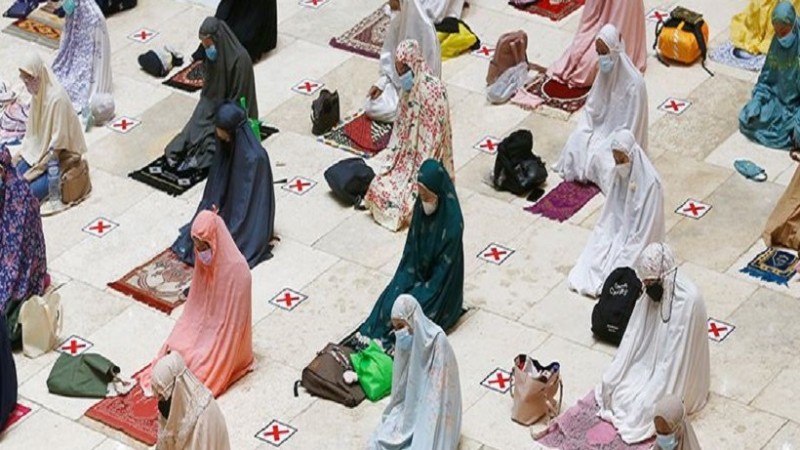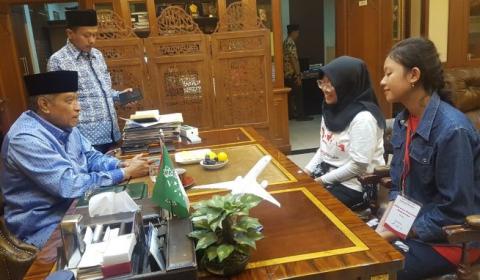Spiritual Ecology: Fulfilling the Qur’anic Mandate to Serve as God’s Vicegerent on Earth (Khalifah fil-Ardh)
NU Online · Senin, 6 November 2023 | 17:28 WIB
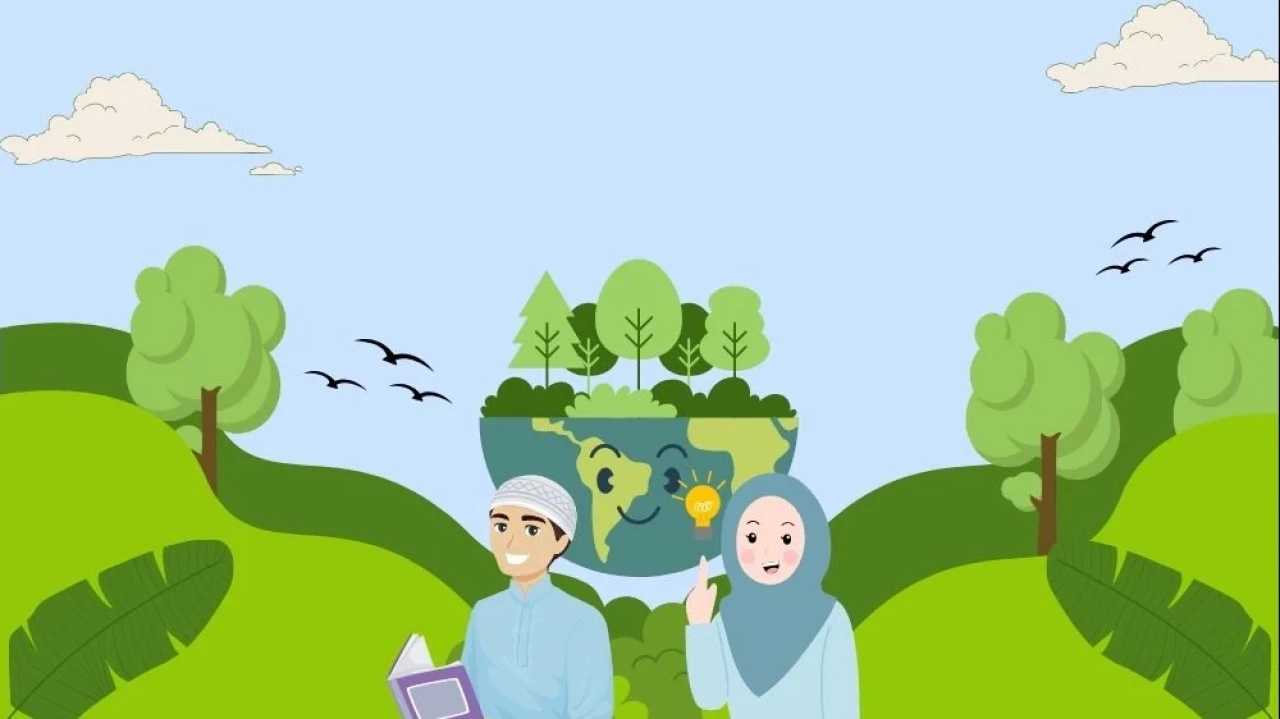
God provides humanity with everything we need to flourish but — in order to do so — we must tend to His creation and ensure that it is well-kept.
Yahya Cholil Staquf
Kolomnis
السلام عليكم ورحمة الله وبركاته. الحمد لله والشكر لله والصلات والسلام على رسول الله سيدنا ومولانا محمد بن عبد الله وعلى أهل وصحبه ومن والاه، أما بعد:
[May the peace, mercy, and blessings of God be upon you. Praise and thanks be to God, and may peace be upon the Messenger of God, our lord Muhammad bin Abd Allah (the Servant of God) and upon his family, companions, and followers.]
Honorable dignitaries, organizers, venerable religious leaders, ladies and gentlemen: greetings from your brothers and sisters in Nahdlatul Ulama, and greetings from Indonesia.
Allow me to begin by thanking the organizers for inviting me to join you here today, in Abu Dhabi, to discuss the issue of ecology from an Islamic perspective.
Although in much of the world, environmental problems are often treated as a matter of secondary or even peripheral importance when compared to supposedly more pressing concerns, I would like to humbly suggest that — from an Islamic perspective as I understand it — environmental stewardship is a divine obligation central to our very presence on earth.
For when Allah tells the angels in Surat al-Baqarah that he will appoint mankind as stewards of his creation, they protest, saying “Will You place upon it one who causes corruption therein and sheds blood, while we exalt You with praise and declare Your perfection?” God replies that, yes, He will for “Verily, I know that which you do not know.” (QS. 2:29-30)
Our starting point when discussing environmental issues, therefore, should be to understand God’s purpose in appointing mankind as his vice-gerents on earth.
This purpose is made clearer in Surat al-A‘raf, where God commands: “Do not spread corruption in the land after it has been set in order. And call unto Him with fear and longing: verily, God’s grace is ever near unto the doers of good!” (QS. 7:56)
God provides humanity with everything we need to flourish but — in order to do so — we must tend to His creation and ensure that it is well-kept. In short, we are challenged by God to prove the angels wrong: rather than fight one another and destroy creation, as the angels expect, we are enjoined to cooperate with one another and put creation into good order. By following Allah’s injunction to do good, we may receive Divine Grace.
The explicit connection God draws in the Qur’an between environmental stewardship and preventing bloodshed is not incidental. We know that for thousands of years mankind has struggled — often in a short-sighted and violent manner — to exploit the earth’s resources, be they animals, other human beings, minerals, transportation networks, capital, or technology.
Those engaged in this struggle for power and control often weaponize group identity — whether ethnic, religious, or ideological — to maintain or acquire a position of dominance. This dynamic is intimately linked to virtually every major conflict in the world today. In an age of nuclear weapons, an unbridled zero-sum competition for power and resources threatens life and civilization itself.
Environmental stewardship thus requires that we overcome our innate tribalism and libido dominandi — our selfish drive to dominate resources — and instead embrace rahmah (universal love and compassion). By overcoming our self-centered, tribal view of the world we may find a way to steward and cultivate God’s creation and manage its resources with wisdom, justice, and compassion. In other words, we should develop and manage the world’s resources in a consensual and equitable manner.
Clearly this is a difficult task, yet striving to achieve it entails nothing less than surrendering ourselves to, and obeying, God’s command
Responsible environmental stewardship, at a global level, requires building a broad-based consensus that extends from the grassroots of society to the corridors of state and institutional power. This is the objective of the G20 Religion Forum (R20) and its Spiritual Ecology Movement, which Nahdlatul Ulama launched under the auspices of Indonesia’s recent Presidency of the G20.
Forging consensus requires listening to all voices. Everyone alive on planet earth is a stakeholder. Our solutions to environmental problems will only be sustainable if they do not undermine international peace and security and genuinely serve the interests of humanity as a whole. This includes the roughly 2 billion people, or 24% of the world's population, who live in precarious circumstances characterized by poverty, instability, and often violence.
Many of the world’s inhabitants depend on fossil fuels in their daily lives and to ensure a minimal level of economic wellbeing. Any strategy that seeks to resolve environmental problems by harming their interests will merely precipitate the bloodshed and chaos that Surat al-Baqarah warns of. We must devise environmental strategies that are fair, benefit everyone, and give people adequate time to adjust to any changes. Radical, top-down prescriptions that do not account for the interests of those who lack wealth and power will simply destabilize societies and further jeopardize our shared environment.
The need for a broad-based consensus is why — while serving on Policy Exchange’s 16-member Indo-Pacific Commission chaired by former Canadian Prime Minister Stephen Harper — we called for the creation of a Conference on Strong Societies: a dialogue mechanism that would engage mass, grassroots organizations across the world in a process to determine the “highest common denominator” regarding shared values upon which agreement can be found.
Today, I renew that call. Let us mobilize public support for a spiritual ecology that is rooted in Quranic principles — following the example of the Messenger of God (saw.), of whom the Noble Qur’an says:
وَمَا أَرْسَلْنَاكَ إِلَّا رَحْمَةً لِلْعَالَمِينَ
“And [thus, O Prophet,] We have sent thee as [an evidence of Our] grace towards all the worlds.” (21:107)
Address delivered by H.E. KH. Yahya Cholil Staquf, General Chairman, Nahdlatul Ulama Central Board
Abu Dhabi, U.A.E., 6 November 2023 / Rabiʻ II 22, 1445 AH
Terpopuler
1
Jadwal Puasa Sunnah Sepanjang Bulan September 2025
2
Koalisi Masyarakat Sipil Nilai Pidato Prabowo Tak Singgung Ketidakadilan Sosial dan Kebrutalan Aparat
3
DPR Jelaskan Alasan RUU Perampasan Aset Masih Perlu Dibahas, Kapan Disahkan?
4
Khutbah Jumat: Maulid Nabi dan 4 Sifat Teladan Rasulullah bagi Para Pemimpin
5
Prof. Moh. Koesnoe, Cendekiawan NU Kaliber Dunia: Ahli Hukum Adat dan Pendidikan
6
Prabowo Sebut Polisi yang Langgar Hukum dalam Penanganan Demo Akan Ditindak
Terkini
Lihat Semua

